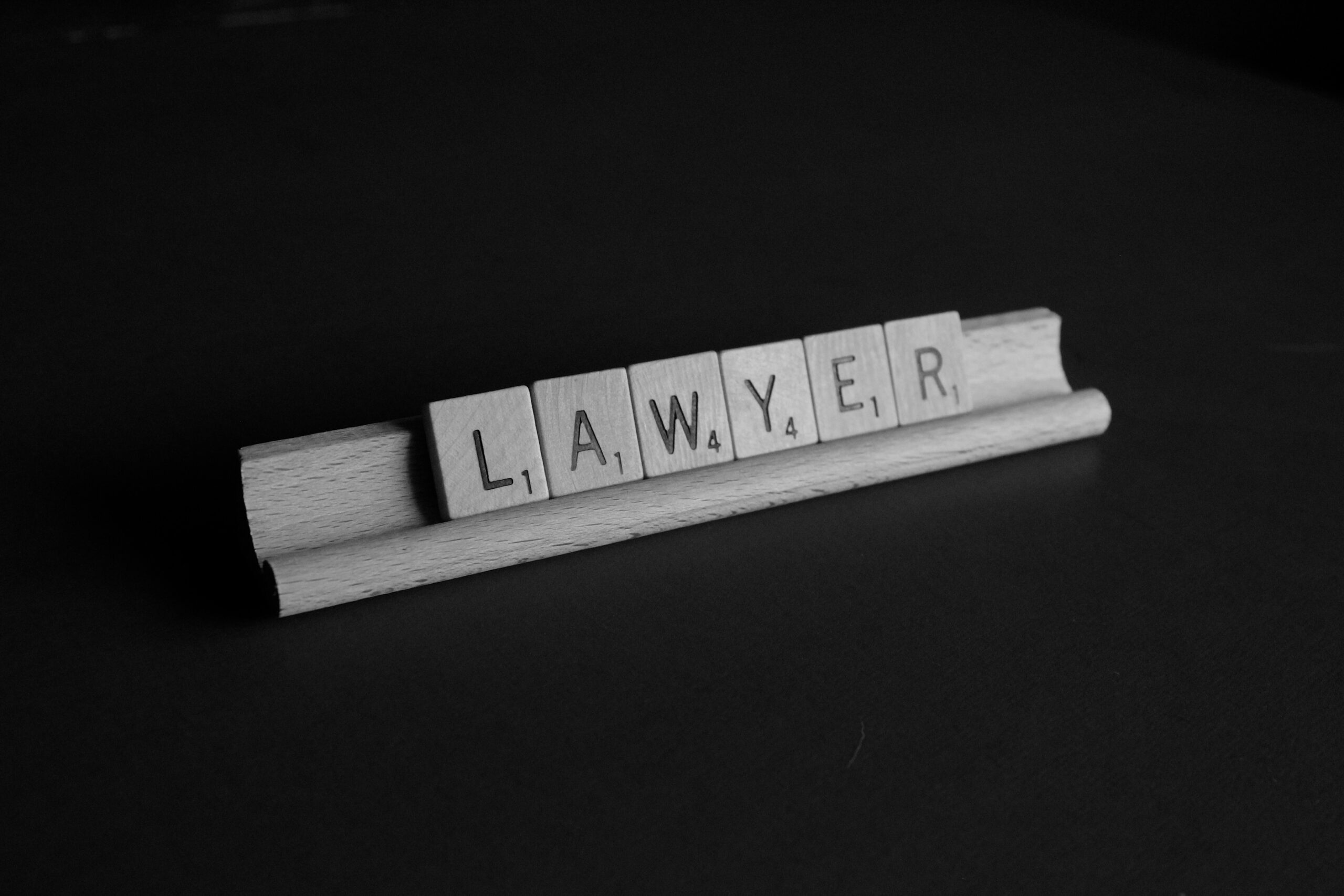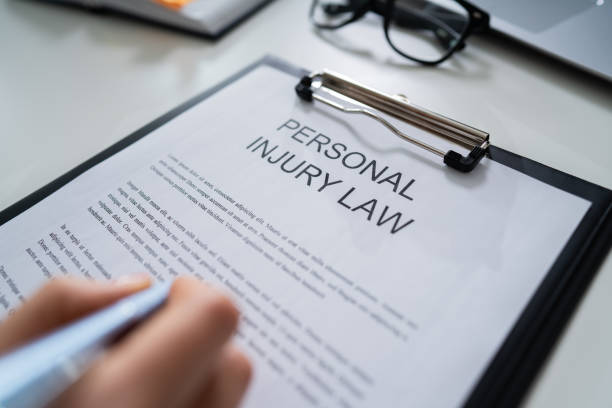Now Reading: Injured on the Job? Finding a Legal Ally You Can Trust in Carrollton
-
01
Injured on the Job? Finding a Legal Ally You Can Trust in Carrollton

Injured on the Job? Finding a Legal Ally You Can Trust in Carrollton
Suffering an injury at work can disrupt your life in ways you never imagined — physically, financially, and emotionally. Between mounting medical bills, missed paychecks, and uncertainty about your future, it’s natural to feel overwhelmed. In Carrollton, Georgia, employees who suffer workplace injuries have legal rights designed to protect them, but understanding and asserting those rights often requires skilled guidance. Finding a legal ally you can trust is essential to ensure that your case is handled with care, professionalism, and a full understanding of Georgia’s workers’ compensation laws.
This article will explore what to do after a workplace injury, the importance of hiring the right attorney, and how to identify a trusted Carrollton workers’ compensation lawyer here who can help you secure the benefits you deserve.
Understanding Workers’ Compensation in Georgia
Workers’ compensation is a form of insurance designed to provide financial and medical benefits to employees injured during the course of their employment. In Georgia, this system operates under a “no-fault” framework — meaning injured workers can receive compensation regardless of who caused the accident, as long as it occurred within the scope of employment.
Key Features of Georgia’s Workers’ Compensation System
- Medical Coverage – All necessary and reasonable medical expenses related to your injury, including doctor visits, surgeries, medications, and rehabilitation, are covered.
- Income Replacement – Workers may be entitled to temporary total disability (TTD) benefits if they’re unable to work, or temporary partial disability (TPD) if they can return to work at reduced capacity.
- Permanent Disability Benefits – If your injury results in lasting impairment, you may qualify for permanent partial disability (PPD) benefits.
- Death Benefits – In the tragic event of a workplace fatality, dependents can receive compensation and funeral expenses.
For a deeper understanding of the legal framework behind these benefits, the Legal Information Institute’s overview of workers’ compensation provides a comprehensive explanation of how these laws function nationwide.
What to Do Immediately After a Workplace Injury
Even a small mistake made immediately after a workplace injury can jeopardize your claim. Here’s what you should do to protect your rights and strengthen your case:
1. Report the Injury Promptly
Georgia law requires that workplace injuries be reported to your employer within 30 days. Failing to report in time could disqualify you from receiving benefits. Make sure to file your report in writing and keep a copy for your records.
2. Seek Immediate Medical Attention
Your employer should provide a list of approved physicians (known as a “panel of physicians”). You must choose from this list for your treatment to be covered. If you fail to use an approved doctor, you could lose your right to benefits.
3. Document Everything
Keep a detailed record of the incident, including:
- Date, time, and location of the accident
- Names of witnesses
- Medical reports and receipts
- Correspondence with your employer or insurer
4. File a Claim with the State Board of Workers’ Compensation
You may need to file Form WC-14 with the Georgia State Board of Workers’ Compensation. This form notifies both your employer and the state that you’re seeking benefits.
5. Contact an Experienced Workers’ Compensation Attorney
Navigating this process can be daunting. Insurance companies often try to minimize payouts or deny claims outright. Having a knowledgeable attorney ensures you understand your rights and receive the maximum compensation you’re entitled to.
Common Workplace Injuries in Carrollton
Carrollton is home to a diverse workforce — from industrial laborers and healthcare workers to retail employees and educators. Each profession carries unique risks. Some of the most common workplace injuries include:
- Slips, Trips, and Falls: Common in offices, construction sites, and manufacturing environments.
- Repetitive Stress Injuries: Caused by repetitive motions such as typing, lifting, or assembly-line tasks.
- Overexertion and Muscle Strains: Resulting from heavy lifting or prolonged physical activity.
- Vehicle-Related Accidents: Common for delivery drivers, truck operators, and construction workers.
- Exposure to Hazardous Substances: Chemical burns or respiratory problems in industrial settings.
Understanding the nature of your injury is vital for determining your eligibility and calculating potential benefits.
Why You Need a Legal Advocate After a Workplace Injury
Many injured employees assume that filing a claim is straightforward — but insurance companies and employers often have their own financial interests in mind. They may argue that your injury wasn’t work-related, that you were partially at fault, or that your medical condition existed before the incident.
A knowledgeable attorney acts as both a shield and a guide. They can help by:
- Gathering medical evidence and documentation
- Handling communications with the insurer
- Representing you in hearings before the State Board of Workers’ Compensation
- Calculating fair compensation for your lost wages and medical expense
- Negotiating settlements on your behalf
The Role of a Workers’ Compensation Lawyer
A seasoned workers’ compensation lawyer does much more than file paperwork. They play a strategic role throughout every stage of your case.
Evaluating Your Claim
Your attorney will first review the details of your injury and employment to ensure that your claim qualifies under Georgia law.
Collecting Evidence
They’ll obtain detailed medical records, employer reports, and expert testimony to build a strong case that demonstrates how your injury affects your ability to work.
Communicating with Insurers
Insurance companies are notorious for lowball offers. Your lawyer will negotiate on your behalf to ensure you receive what you’re owed.
Representing You at Hearings
If your claim is denied or disputed, your attorney can represent you in front of the State Board and appeal decisions if necessary.
Ensuring Compliance
Workers’ compensation law involves strict deadlines and procedural requirements. A lawyer ensures that all documents are filed correctly and on time.
Qualities to Look for in a Carrollton Workers’ Compensation Lawyer
Not all attorneys have the same level of experience or dedication. When seeking legal help, consider the following qualities:
- Experience in Workers’ Compensation Law – Specialized experience matters. You want an attorney who focuses specifically on workplace injuries.
- Proven Track Record – Ask about the lawyer’s success rate in securing settlements and benefits for clients.
- Local Knowledge – A lawyer familiar with Carrollton and Georgia’s legal system can better anticipate how local judges and insurers handle claims.
- Accessibility and Communication – Your attorney should keep you informed at every step and respond promptly to your questions.
- Client Reviews and Reputation – Check verified reviews on reputable legal platforms such as Lawyers.com to assess credibility and client satisfaction.
Common Challenges in Workers’ Compensation Claims
Despite clear laws protecting workers, many injured employees still face hurdles in obtaining their benefits. Common challenges include:
Denied Claims
Insurers often deny claims by arguing that the injury did not occur during work hours or that there’s insufficient evidence.
Delayed Payments
Even after a claim is approved, delays in wage replacement or medical coverage can cause significant financial hardship.
Employer Retaliation
Although illegal, some employers retaliate against workers who file claims by cutting hours, reassigning duties, or creating a hostile environment.
Inadequate Settlements
Without an attorney, you may accept a settlement that doesn’t fully account for long-term medical needs or future lost wages.
An experienced workers’ compensation lawyer can help you overcome these challenges by protecting your rights and ensuring you receive fair treatment.
How Long Do Workers’ Compensation Benefits Last?
In Georgia, the duration of benefits depends on the nature and severity of your injury:
- Temporary Total Disability (TTD): Up to 400 weeks for most injuries.
- Temporary Partial Disability (TPD): Up to 350 weeks if you can work but earn less.
- Catastrophic Injuries: Benefits may continue indefinitely for permanent disabilities.
Your lawyer will help ensure the benefits reflect the true impact of your injury, not just short-term symptoms.
When to Consider Legal Action Beyond Workers’ Compensation
While workers’ compensation generally prevents employees from suing their employers, there are exceptions. You may be able to file a third-party lawsuit if another entity’s negligence contributed to your injury. For instance, if defective machinery or unsafe property conditions caused your accident, you may pursue compensation beyond standard workers’ compensation benefits.
Your attorney will help evaluate whether additional legal avenues are available in your specific case.
Taking the Next Step: Securing Your Rights
Getting injured on the job can feel like your world has been turned upside down. Between physical pain, lost income, and uncertainty about your recovery, it’s easy to feel powerless. But you don’t have to face it alone. Partnering with a skilled, compassionate attorney ensures that your rights are protected and that you receive every benefit you’re entitled to under Georgia law.
Finding a trusted Carrollton workers’ compensation lawyer is the first step toward rebuilding your future after a workplace injury. With the right legal advocate by your side, you can focus on what matters most — healing and moving forward.
About the author: Leland D. Bengtson
As a journalist, Leland D. Bengtson dedicated most of his career to law reporting. His greatest satisfaction is to convey legal matters to the public in a language that they can understand. He is active on various platforms and media outlets, writing about common legal issues that people confront every day. While medical malpractice is his strong suit, Leland covers plenty of other topics, including personal injury cases, family law, and other civil and even criminal legal matters.











